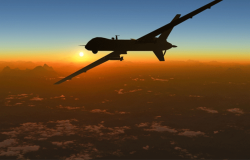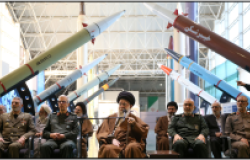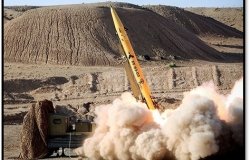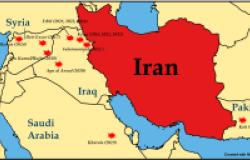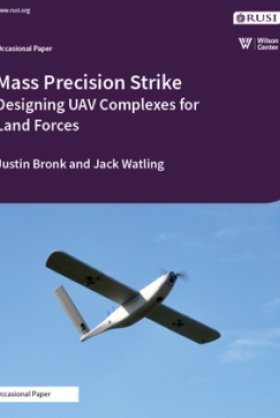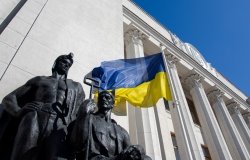Osama bin Laden Is Dead. What's Next?
Following the killing of Osama bin Laden by a U.S. special forces raid in Pakistan, Wilson Center Director, President, and CEO Jane Harman and other experts weigh in on what this means for U.S.-Pakistan relations, the United States' counter-terrorism strategy, and more.
Following the killing of Osama bin Laden by a U.S. special forces raid in Pakistan, Wilson Center experts weigh in on what this means for U.S.-Pakistan relations, the United States' counter-terrorism strategy, and more. Follow along with the latest from Director, President, and CEO Jane Harman and other experts.
7:15 a.m. Director, President, and CEO Jane Harman appears on NPR's "Morning Edition" to discuss Pakistan's involvement in finding bin Laden and the future of U.S.-Pakistan relations.
"I think it is a hugely important message to the world and especially the 9/11 families, but we can't rest here," Harman said. "Let's have a new start here with Pakistan. There's a huge opportunity, I would think, to work with the Pakistani government in rounding up the rest of al Qaeda in Pakistan."
10:30 a.m. Public Policy Scholar Aaron David Miller publishes a new op-ed on what bin Laden's death means for counter-terrorism strategy and U.S. reception in the Arab world.
The success against bin Laden also raises deeply disturbing questions about Pakistan. In the seamy, dark world of intelligence and black ops, it was taken for granted that Pakistani intelligence has been supporting, harboring anti-American insurgents including the Pakistani and Afghan Taliban to hedge Pakistan's own bets against India, maintain its influence with Islamic extremists, and keep its options open in Afghanistan. That Pakistan may also have been harboring bin Laden and other 9/11 planners elevates that behavior to a new level of perfidy. I hope that it turns out that the Pakistanis were the ones who gave bin Laden up, but even then, they would have a great deal of explaining to do.
Read the full story on wilsoncenter.org.
12:30 p.m. Public Policy Scholar Richard Whittle releases a commentary on how military drones aided in finding bin Laden and how they are changing the battlefield in Pakistan.
"The controversy over the CIA's drone missile strikes in Pakistan tends to obscure the fact that the main role of unmanned aerial vehicles in this war has been to act as a nearly undetectable eye-in-the-sky that can circle a target area for hours on end," Whittle said. "All this makes them ideal for what is called forensic intelligence."
Read more on wilsoncenter.org.
12:30 p.m. Jane Harman appears on Fox News to discuss what's next for U.S. military intelligence.
"We now have intelligence capability that is lashed together. That means sixteen intelligence agencies are under one joint command. ... Almost ten years after 9/11, we can do things we couldn't do before."
Watch the latest video at video.foxnews.com
8 p.m. Harman appears on MSNBC's "The Last Word with Lawrence O'Donnell" to discuss where the United States now stands with respect to terrorist threats around the world.
"Now al Qaeda, instead of being a top-down, vertical organization, is a loose, horizontal organization with other affiliates that are as potent as what it does from various parts of Pakistan. For example, in Yemen, al Qaeda in the Arabian Peninsula (AQAP) is led by a fellow that I think most Americans have now heard of, al-Awlaki."
